Duration of antigen availability influences the expansion and memory differentiation of T cells
- PMID: 21775679
- PMCID: PMC3159832
- DOI: 10.4049/jimmunol.1100363
Duration of antigen availability influences the expansion and memory differentiation of T cells
Abstract
The initial engagement of the TCR through interaction with cognate peptide-MHC is a requisite for T cell activation and confers Ag specificity. Although this is a key event in T cell activation, the duration of these interactions may affect the proliferative capacity and differentiation of the activated cells. In this study, we developed a system to evaluate the temporal requirements for antigenic stimulation during an immune response in vivo. Using Abs that target specific Ags in the context of MHC, we were able to manipulate the duration of Ag availability to both CD4 and CD8 T cells during an active infection. During the primary immune response, the magnitude of the CD4 and CD8 T cell response was dependent on the duration of Ag availability. Both CD4 and CD8 T cells required sustained antigenic stimulation for maximal expansion. Memory cell differentiation was also dependent on the duration of Ag exposure, albeit to a lesser extent. However, memory development did not correlate with the magnitude of the primary response, suggesting that the requirements for continued expansion of T cells and memory differentiation are distinct. Finally, a shortened period of Ag exposure was sufficient to achieve optimal expansion of both CD4 and CD8 T cells during a recall response. It was also revealed that limiting exposure to Ag late during the response may enhance the CD4 T cell memory pool. Collectively, these data indicated that Ag remains a critical component of the T cell response after the initial APC-T cell interaction.
Figures
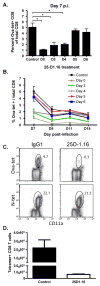


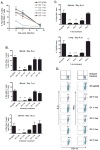
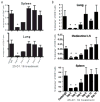
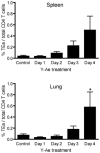
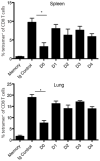

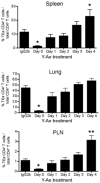
References
-
- Kaech SM, Hemby S, Kersh E, Ahmed R. Molecular and functional profiling of memory CD8 T cell differentiation. Cell. 2002;111:837–851. - PubMed
-
- Monks CR, Freiberg BA, Kupfer H, Sciaky N, Kupfer A. Three-dimensional segregation of supramolecular activation clusters in T cells. Nature. 1998;395:82–86. - PubMed
-
- Grakoui A, Bromley SK, Sumen C, Davis MM, Shaw AS, Allen PM, Dustin ML. The immunological synapse: a molecular machine controlling T cell activation. Science. 1999;285:221–227. - PubMed
-
- Van Stipdonk MJ, Lemmens EE, Schoenberger SP. Naive CTLs require a single brief period of antigenic stimulation for clonal expansion and differentiation. Nat Immunol. 2001;2:423–429. - PubMed
Publication types
MeSH terms
Substances
Grants and funding
LinkOut - more resources
Full Text Sources
Other Literature Sources
Research Materials

